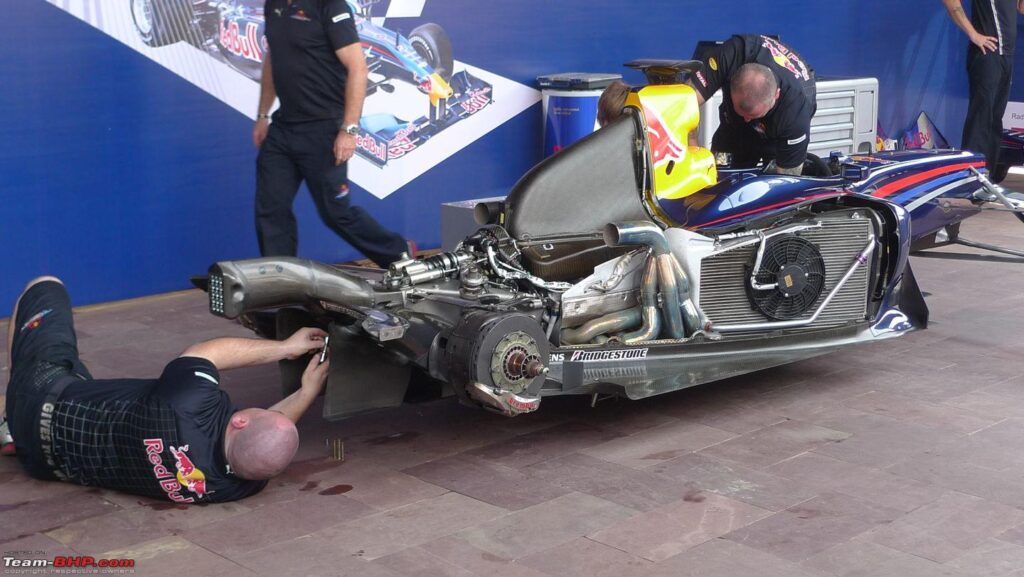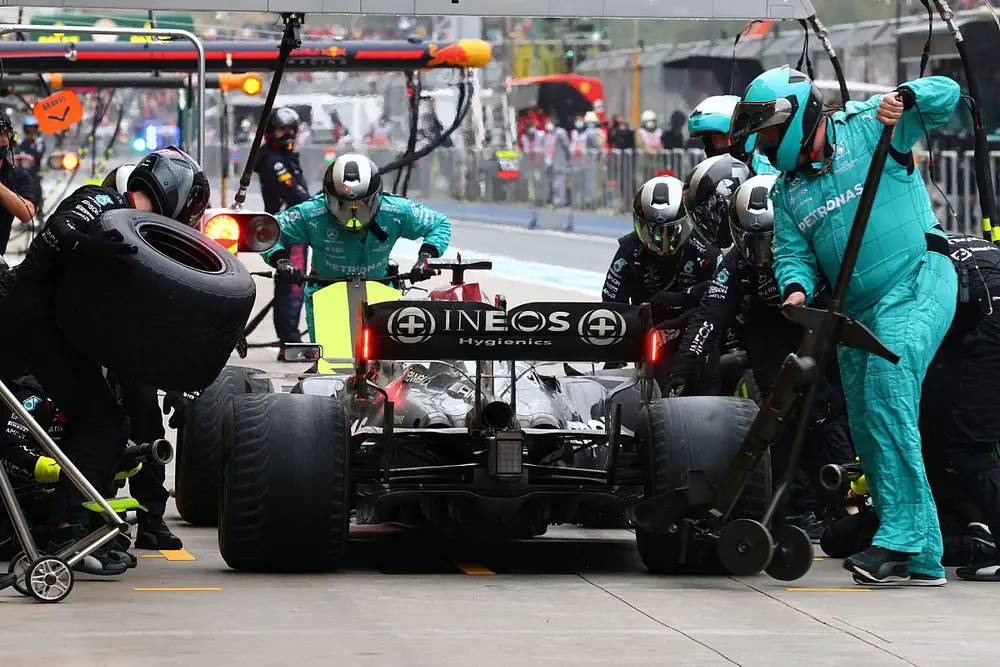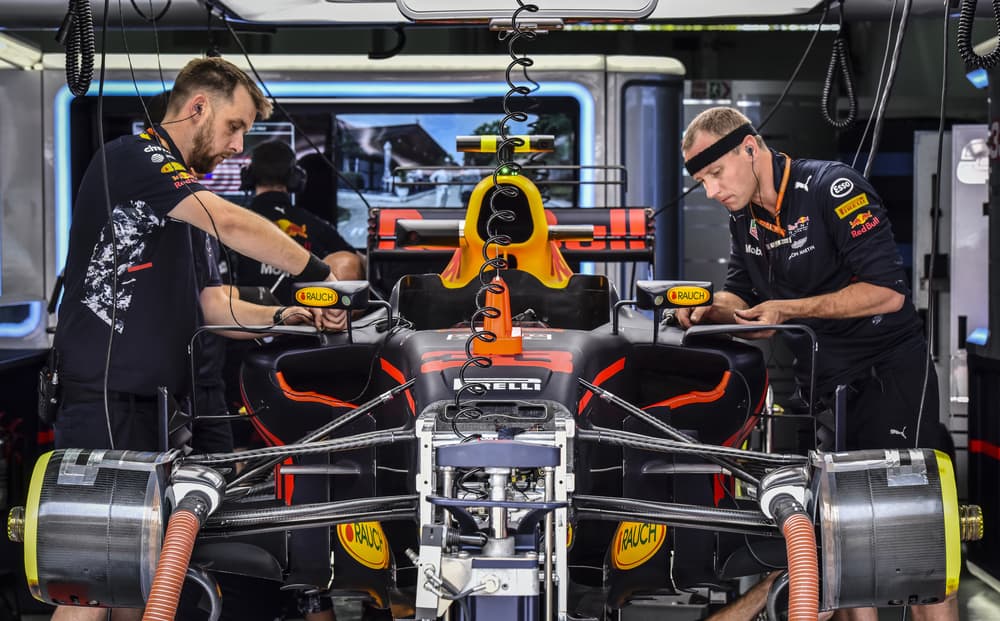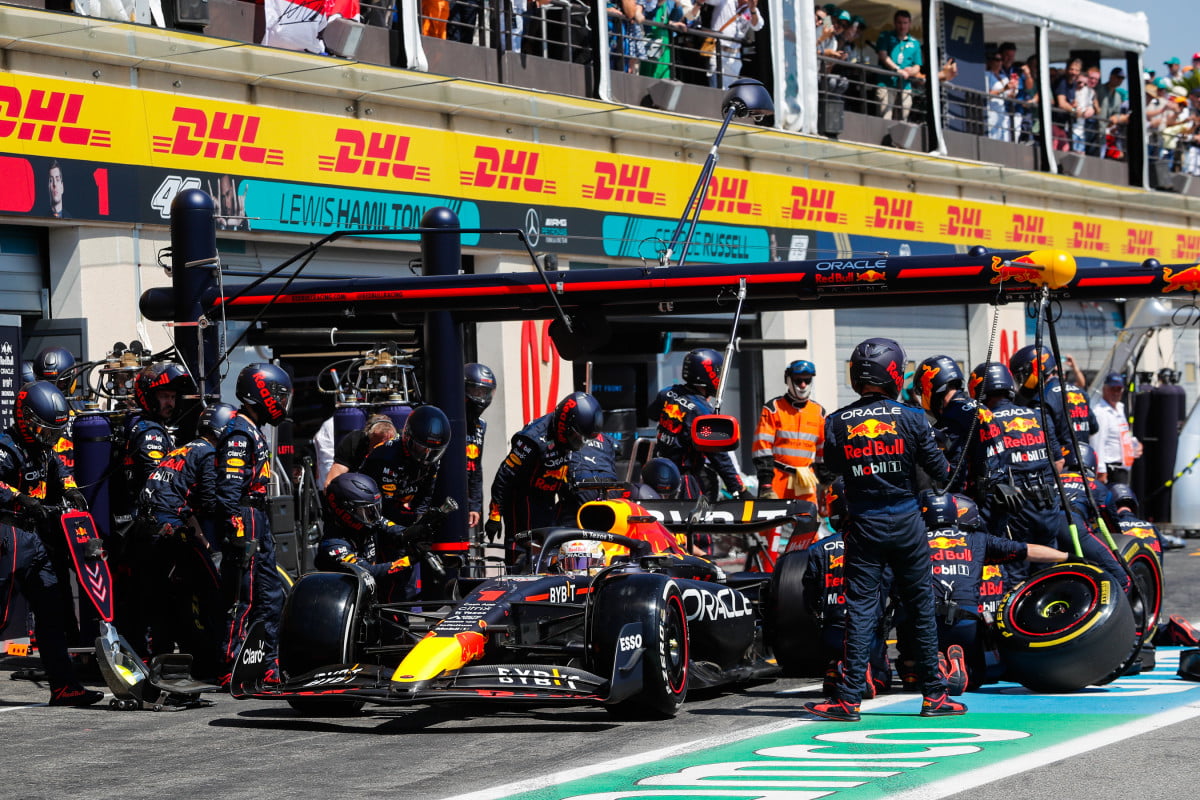In the world of Formula 1, the drivers take center stage, their names and faces plastered across billboards and TV screens. But behind every great driver are the unsung heroes – the F1 Mechanics.
These skilled individuals play a vital role in the success of a team, yet their tireless efforts often go unnoticed. From meticulously fine-tuning the engine to lightning-fast pit stops, F1 mechanics are the backbone of any racing team. They work long hours in high-pressure environments, ensuring that every component of the car is in perfect condition and ready to deliver maximum performance on the track.
In this article, we will delve into the world of F1 mechanics, exploring the critical tasks they undertake, the challenges they face, and the remarkable skills that make them the unsung heroes of Formula 1. As the title suggests we also have a look at how much and F1 mechanic can expect to earn.
What Do F1 Mechanics Do?
There are several different roles that race team mechanics fulfill at the track. They normally fall into one of the following categories.
F1 Mechanics Set Up the Pit Area
During a race weekend, the pace picks up even more. F1 mechanics are responsible for setting up the pit area, ensuring that everything is ready for lightning-fast pit stops.
Assembling The Car

The cars are transported around the world in a “broken down” state. This means the various systems, and body parts are removed from the car while it is transported.
The cars normally arrive at the track in this state on the Wednesday before the weekend. The F1 mechanics have to reassemble the car and calibrate its systems in time for the practice sessions on the Friday.
Repair The Car
On a normal weekend the car will be driven over three practice sessions, three qualifying sessions and the main race. On weekend were there are sprint races these numbers change.
The risk of the car being damaged is extremely high, and the mechanics have to be on constant standby and ready to repair the damage.
This is no small feat as in some cases the mechanical and engineering staff will have to work through the night to get the car ready for the track on the next day.
This is a brutal side of being an F1 mechanic.
Adjust the F1 Car’s Settings
During the practice sessions the car’s set up may be changed repeatedly until the correct values for that track are found. Teams also use the practice sessions to test new upgraded parts of the cars.
This means the mechanic crew have to have a deep understanding of the car and be able to perform extensive work on it very fast.
Acting as the Pit Crew

These pit stops require split-second decision-making, flawless coordination, and nerves of steel. The pressure is intense, and any mistake can have disastrous consequences. F1 mechanics thrive under this pressure, working together as a team to deliver seamless pit stops that can give their driver a crucial advantage on the track.
You’ve seen the pit crew stand ready to change a car’s tires. Some teams (Red Bull Being the most notable) have achieved incredible pit stop times in the past. The fastest 2023 pit stop record was Red Bull in 2.07 seconds at the Spanish GP.
This speed does not happen miraculously, but instead takes a lot of repeated practice. Years ago, the famous golfer, Gary Player was accused of just being lucky. His response was that “the more he practiced the luckier he got!”
The same is true for pit crews. Most teams demand that their pit crew maintains a certain level of fitness, and that at a minimum, pit stops are practiced at least once per week.
In addition to changing tires, pit crews have to be ready with tire warmers, any required spare parts and anything else that the engineers deem necessary.
Stripping the F1 Car Down
At the end of the race there is very little time for the mechanics to celebrate (or commiserate) with each other.
They have to immediately get the car ready for shipping to the next race venue. Once again this may mean working through the Sunday night and preparing every component for assembly in another country in a few days.
As F1’s calendar explodes even more and triple headers become normal these working hours are going to become even longer and more punishing.
The shear workload the mechanics face is very high, tiring and intense.
F1 Mechanics Deconstruct the Pit Area
When the car is safely disassembled and packed for transport, the pit crew has to then disassemble the pit area and make the component parts ready for transport to the next circuit in another country.
How do I Become an F1 Mechanic?

Becoming an F1 mechanic is no easy task. It requires a unique blend of technical knowledge, practical skills, and a deep passion for motorsports. To start their journey, aspiring F1 mechanics often pursue a degree in mechanical engineering or a related field.
If they are willing to start from the ground up, then a diploma would be a help. Courses such as a Level 2 Diploma in Light Vehicle Maintenance and Repair Competence and a Level 3 Diploma in Vehicle Technology provide candidates with a better understanding of some of the fundamental principles of working as a mechanic.
Some Teams Look For Experience
Some teams are willing to let suitably experienced mechanics join the team, even if they don’t have a formal qualification.
This provides them with a solid foundation of theoretical knowledge, which they can then apply to the complex world of Formula 1 racing. However, a degree alone is not enough to secure a position in an F1 team.
Skills and experience are the biggest draw cards for this role. If you have worked with high performance engines (preferably F1) and have a broad and detailed mechanical knowledge base this will help in your selection
In addition to academic qualifications, F1 mechanics must also possess a range of practical skills.
They need to be proficient in diagnosing and repairing mechanical issues, as well as working with advanced electronic systems and computer software.
They must also have a deep understanding of aerodynamics, as even the smallest adjustment to the car’s body can have a significant impact on performance. Attention to detail is essential, as F1 mechanics must meticulously inspect every component of the car to ensure it meets the team’s exacting standards.
They must also be able to work well under pressure, as they often face tight deadlines and high-stakes situations.
However, technical skills are not the only qualities that make a great F1 mechanic. They must also possess excellent communication and teamwork skills.
Teamwork Is Essential
F1 mechanics work closely with the rest of the pit crew, as well as the drivers and engineers. This is how they ensure that every aspect of the car is optimized for performance.
They must be able to convey complex technical information in a clear and concise manner, as well as work collaboratively to solve problems and make split-second decisions during pit stops. The ability to remain calm and focused under pressure is crucial, as any miscommunication or error can have serious consequences on the track.
Overall, becoming an F1 mechanic requires a unique combination of technical expertise, practical skills, and the ability to thrive in high-pressure environments.
How Many Hours do F1 Mechanics Work?
There are a number of times in the year when this job is even more intense than others.
When the season is ramping up for pre-season the working hours are very long. You can expect to work 60+ hours per week, every week for six days a week.
That means over 6 days, doing 12 hours Monday to Friday and then a few more on Saturday morning.
The work is also very intense, and the mechanics have to work incredibly efficiently to get through their duties.
At other times of the year the workload drops off to more sane hours, however the schedule still remains intense.
How Much Do F1 Mechanics Make?
The cost cap regulations have reduced the earning potential of F1 mechanics. Despite this, teams are willing to pay for exceptional staff who have a great work ethic.
Although teams don’t release specific salary scales, salaries generally range from $20k per year (junior new hire) to $150k per year for a team manager. According to PayScale, the average salary for a Formula 1 mechanic is around $55,000 per year.
Ultimately it depends on experience, seniority, and which team they are on.
Conclusion
Being an F1 mechanic is more about a love for the sport than an opportunity to get rich. Despite the hours most F1 mechanics love the work. Not just for the novelty of working on parts of an F1 car that the press hasn’t even seen yet, but the actual work environment and culture is normally very impressive.
An F1 mechanic is part of a team, and everyone is working towards the same goal. They keep each other motivated, the banter is good, and yet everyone is also completely professional and takes full responsibility for their work.
Most teams have a culture of honesty and encourage members to admit when they have made a mistake. The manager then helps them correct the error and generally doen’t call them out on it.

